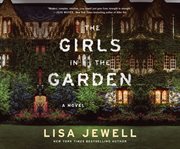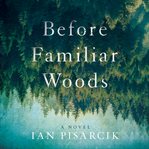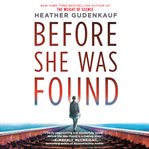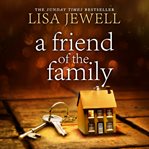The Girls in the Garden 1 Dear Daddy, We moved into the new flat this weekend. It's nice. It's on a quiet street with little houses. You walk into a narrow hallway and if you turn right there are two bedrooms. I have to share with Grace but I really don't mind. You know I never liked sleeping on my own in the old house anyway. Not really. Do you remember? I don't really know how much you remember about things from before. I don't know if you've lost all your memories or if you're just the same except with all the other problems. Anyway, our room is really cute. We put our beds in an L shape so that our feet point together and our heads are furthest apart and I can see Grace when I'm in bed. It's like this: It's weird how I'm eleven and I should be wanting my own room and I just really don't. Remember how I used to say I wish we lived in a caravan? So we could be all snug together? Well, this is a bit like that, I suppose. Then Mum's room is next door to ours. It's quite small but she's got a little shower room attached, which is nice for her. Then on the other side of the hallway there's a kitchen which is square with white units with silver handles and white tiles and Mum says it looks like an operating theater. It kind of does. Well, it's totally different to our old kitchen, that's for sure. Do you remember our old kitchen? Do you remember those crazy tiles around the sink with the bits of fruit on them? Grapes and stuff? I sort of miss those now. So the kitchen has a breakfast bar, which is good, I like breakfast bars, and a window that looks over the backyard. And next door is a tiny living room. It's all painted white with that kind of shiny wood flooring that's not really wood and whoever lived here before must have worn very sharp heels because it's full of little dents, like a Ryvita. There's a door in the living room that takes you into the backyard. It's teeny-weeny. Just big enough for a little table and some chairs. And maybe it's just because it's winter but it does smell a bit damp out there and there's lots of moss all over the walls. And it has a little wooden gate and when you go through the gate there's a totally massive private park. We were not expecting it. Mum didn't even tell us about it before. I was just thinking what a cute little flat it was and then suddenly it's like Narnia, there's all these tall trees and pathways and a lawn that takes you up to all these big white houses with windows that are as tall as two men and you can see the chandeliers and the big splashy paintings on the walls. At night when you look up the hill and the houses have all their lights on it's so pretty. And in the park itself there are all these pathways and little tucked-away places. A secret garden which is hidden inside an old wall covered with ivy, like the one in the book. A rose garden which has bowers all the way around and benches in the middle. And then there's a playground too. It's not particularly amazing, just some swings and a clonky old roundabout and one of those sad animals on a spring. But still, it's cool. This is what the park looks like. Mum says I can't tell you the name of the park, or where it is. I totally don't know why. But it is still in London. Just a different part to where we lived. So, all in all I quite like it here. Which canNOT be said for Grace. She hates it. She hates sharing a room with me, she hates the tiny rooms and the narrow hallway and the fact there's nowhere to put anything. And she hates our new school. (I can tell you it's a girls' school and there are two baby goats and a Vietnamese potbellied pig in the playground. But I can't tell you what it's called. I'm really sorry.) Anyway, she hates it. I don't really know why. I really like it. And also she hates the communal park. She says it's weird and scary, probably full of murderers. I don't think so. I think it looks interesting. Kind of mysterious. I have to go now. Mum says she doesn't know if they'll give you any letters or even if you'd be able to read them anyway. But I always told you everything, Dad, and I don't want to stop now. Love you. Get better! Your Pip (squeak) xxxxxxx "Look," said Adele, standing in the tall window of her living room, her arms folded across her stomach. "More new people." She was watching a young woman with a soft helmet of pale blond hair wearing an oversized parka with a huge fur-trimmed collar that looked as though it had eaten her. She was walking along the perimeter of the Secret Garden, followed by two biggish girls, Adele couldn't really gauge their age, but she thought roughly eleven, twelve, thirteen, that kind of area. The girls had matching heads of thick dark curls and were wearing similar-looking parkas to--she assumed--their mother. They were tall and solid, almost, Adele couldn't help herself from thinking, verging on the overweight. But hard to tell in the winter coats. Leo joined her at the window. "Oh," he said, "them. I saw them moving in a few days ago." "Whereabouts?" "The terrace," he said, "about halfway down." Virginia Park was formed in the space between a long row of small, flat-fronted Georgian cottages on Virginia Terrace and a majestic half-moon of stucco-fronted mansions on Virginia Crescent, with a large Victorian apartment block at either end. Adele had lived on Virginia Crescent for almost twenty years. She'd moved into Leo's flat when she was twenty-one, straight from a cramped flat-share on Stroud Green Road. She had been immediately overwhelmed by the high ceilings and the faded grandeur: the foxed mirrors and threadbare sofas, old velvet shredded by the claws of a dozen long-dead cats; the heavy floor-length curtains patterned with sun-bleached palm fronds and birds of paradise; the walls of books and the grand piano covered with a fringed chenille throw. They'd long since taken out the opulent seventies-style bathroom suite with its golden bird-shaped taps and green porcelain sanitary-ware. They'd ripped out the expensive, claret-red carpets and taken down the curtains so heavy they'd needed two people to take the weight. Leo's mother had died twelve years ago and two years later his father had moved to some landlocked African state to marry a woman half his age. She and Leo bought out his two brothers and room by room they'd made the flat their own. Adele felt as much a part of the park community as her husband, who had grown up on these lawns. She had seen babies become adults. She had seen a hundred families come and go. She had had dozens of other people's children in and out of her home. The park became a mystery during these winter months: neighbors becoming shadows glimpsed through windows, their children growing taller and taller behind closed doors, people moving out, people moving in, and people occasionally dying. And it wasn't until the onset of spring, until the days grew longer and the sun shone warmer, that the secrets of the winter were revealed. She looked again at the new arrivals. Gorgeous girls, tall and big-boned, both of them, with square-jawed faces like warrior queens. And then she turned her gaze to their elfin, worried-looking mother. "Was there a man?" she asked Leo. "When they moved in?" "Not that I noticed," he said. She nodded. She wanted to wander out there now, accidentally cross paths, introduce herself, make sure they realized that there was more to the park than it might appear on a dank January afternoon such as this. She wanted to impart some sense of the way the park opened like a blossom during the summer months: back doors left open; children running barefoot in the warm dark of night; the red glow of tin-can barbecues for two in hidden corners; the playground full of young mothers and toddlers; the pop and thwack of Ping-Pong balls on the table wheeled out by the French family along the way; cats stretched out in puddles of sunshine; striped shadows patterning the lawn through fronds of weeping willows. But right now that was all a long way off. Right now it was January and in an hour or so it would be getting dark, lights switched on, curtains pulled shut, everyone sealed up and internalized. The park itself was dark and shabby: lines of bare-branched trees, dead-faced backs of houses, pale graveled paths covered in the last of autumn's leaves, an air of desolation, the melancholic whistle of wind through leafless tendrils of weeping willows, cats sitting listlessly on walls. "I wonder where those girls go to school," she muttered mainly to herself. The girls' school up by the heath, maybe? Or maybe even the hothouse place on the other side of the main road? She tried to work out whether they had money or not. You couldn't assume anything in this community. Half these houses were owned by a charitable trust and the big apartment blocks at either end were affordable housing for service workers. There was even a halfway house on the terrace, home to an endless succession of recently released female offenders and their children, its backyard cemented over and sprouting weeds, with a solitary never-used plastic rocking dog. There was no single type of person who lived here. No neat social demographic catchment. Everyone lived here. TV presenters, taxi drivers, artists, teachers, drug addicts. That was the joy of it. "You're starting to look a bit creepy there, Del." She jumped slightly. "Those girls will be going: 'Mum, have you seen that weird woman over there who keeps staring at us?' " Adele turned and smiled at Leo. "They can't see me," she said, "not in this light." "Well, that makes it even worse! 'Mum, there's a ghostly shape in that window over there. I don't like it!' " "Okay." Adele turned one last time, before moving away from the window. Excerpted from The Girls in the Garden by Lisa Jewell All rights reserved by the original copyright owners. Excerpts are provided for display purposes only and may not be reproduced, reprinted or distributed without the written permission of the publisher.




